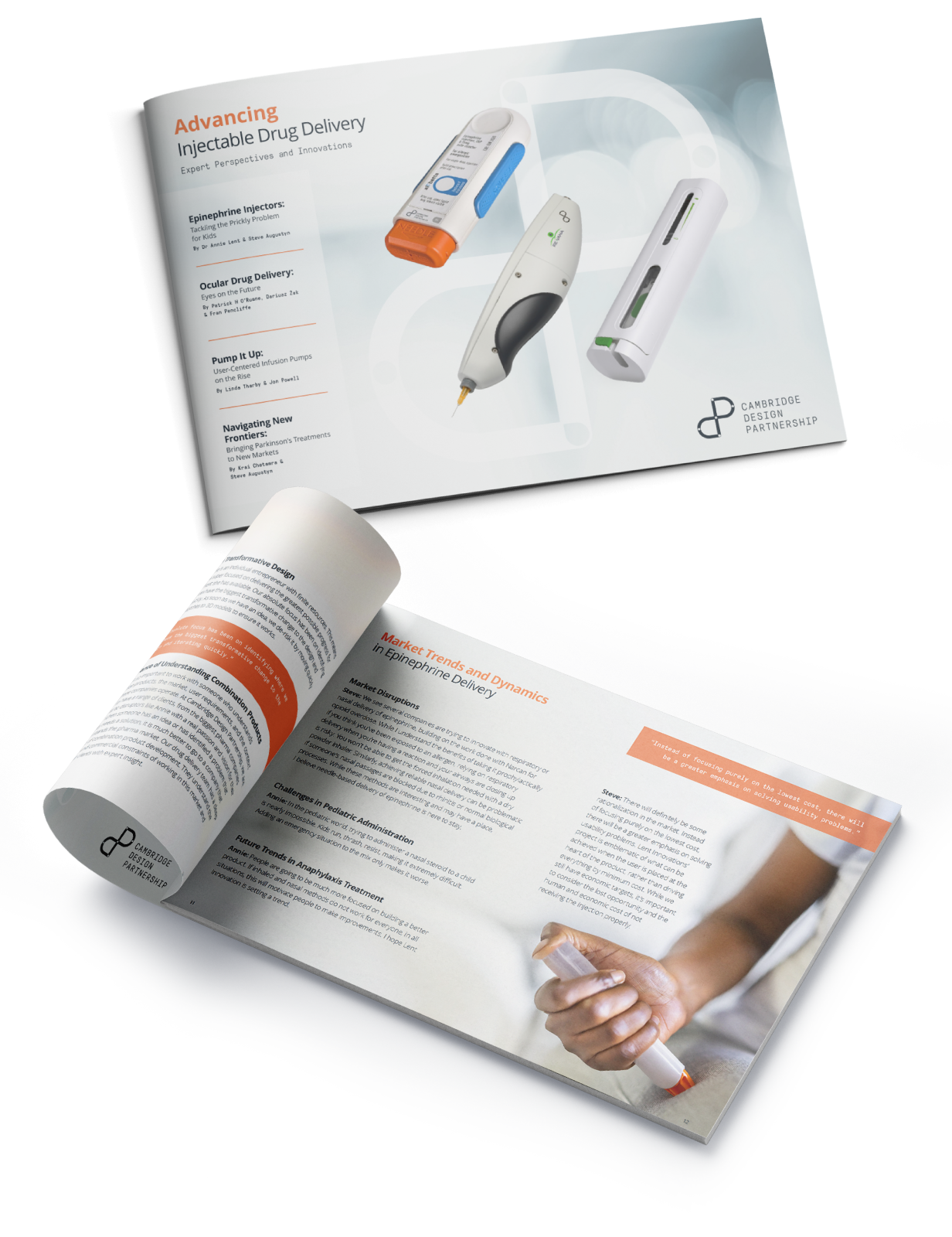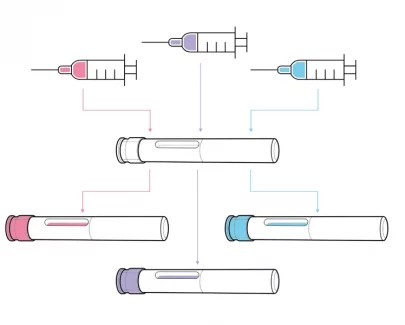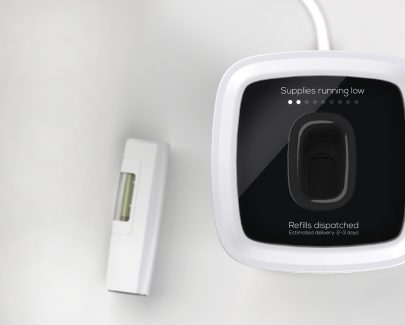EXCLUSIVE INSIGHTS
Advancing Injectable
Drug Delivery Systems
Unlock expert opinions and insights with four in-depth interviews on the challenges of parenteral innovation.
By Clare Beddoes • Head of Drug Delivery
Featuring exclusive interviews from industry leaders and pharma innovators
Get insider insights
Tell us a bit about yourself and we’ll email the guide directly to you.

Each article provides exclusive insights on different aspects of injectable drug delivery, offering valuable perspectives on design, usability, and market trends.
Expert Perspectives and Innovations
- As more complex injectable drugs move from clinic to home, are devices keeping pace with patient expectations and healthcare system expectations?
- What does it take to make drug delivery safer, simpler, and more effective, especially when every second counts?
- What role does user-centered design play in making advanced therapies more accessible and effective?
- Looking ahead, how can delivery technology help unlock access to life-changing treatments?
To answer these questions, this downloadable PDF explores the future of injectable drug delivery, spotlighting innovations that are transforming patient care. Furthermore, through real-world examples, we dive into how device design, patient-centricity, and pharma-device collaboration are reshaping the landscape.
Download the guide to access the full interviews and explore these insights in detail:
Epinephrine injectors for pediatric use
Improving usability for effective emergency treatment
Ocular drug delivery
Advancing sustained release to ease the burden of acute therapies
User-centered infusion pumps
Enhancing patient comfort and convenience
Advanced Parkinson’s Disease treatments
Strategies to overcome regulatory challenges
OTHER CONTENT

Analysis
Fran Pencliffe of Cambridge Design Partnership explores the benefits of platform devices for parenteral delivery and outlines the challenges, risks and best practices when bringing a combination product to market in this way.

Analysis
The pharma industry’s move towards larger volumes of subcutaneous (SC) therapeutics and home-based care is increasing the demand for self-administration devices. We recently partnered with KORU to explore innovations in infusion pump technology aimed at enhancing patient comfort and convenience

Case Study
Patients suffering from chronic diseases such as rheumatoid arthritis or multiple sclerosis often follow a complicated treatment regimen at home. They sometimes need to store their drugs in the fridge, warm them up to the correct temperature for injection, prepare their auto-injector for use and finally dispose of the used device safely.